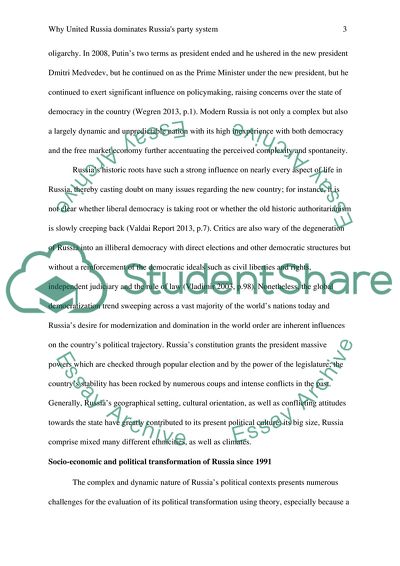Cite this document
(Why United Russia Dominates Russia's Party System Essay Example | Topics and Well Written Essays - 2750 words, n.d.)
Why United Russia Dominates Russia's Party System Essay Example | Topics and Well Written Essays - 2750 words. https://studentshare.org/politics/1820651-why-does-united-russia-dominate-russias-party-system
Why United Russia Dominates Russia's Party System Essay Example | Topics and Well Written Essays - 2750 words. https://studentshare.org/politics/1820651-why-does-united-russia-dominate-russias-party-system
(Why United Russia Dominates Russia'S Party System Essay Example | Topics and Well Written Essays - 2750 Words)
Why United Russia Dominates Russia'S Party System Essay Example | Topics and Well Written Essays - 2750 Words. https://studentshare.org/politics/1820651-why-does-united-russia-dominate-russias-party-system.
Why United Russia Dominates Russia'S Party System Essay Example | Topics and Well Written Essays - 2750 Words. https://studentshare.org/politics/1820651-why-does-united-russia-dominate-russias-party-system.
“Why United Russia Dominates Russia'S Party System Essay Example | Topics and Well Written Essays - 2750 Words”. https://studentshare.org/politics/1820651-why-does-united-russia-dominate-russias-party-system.


